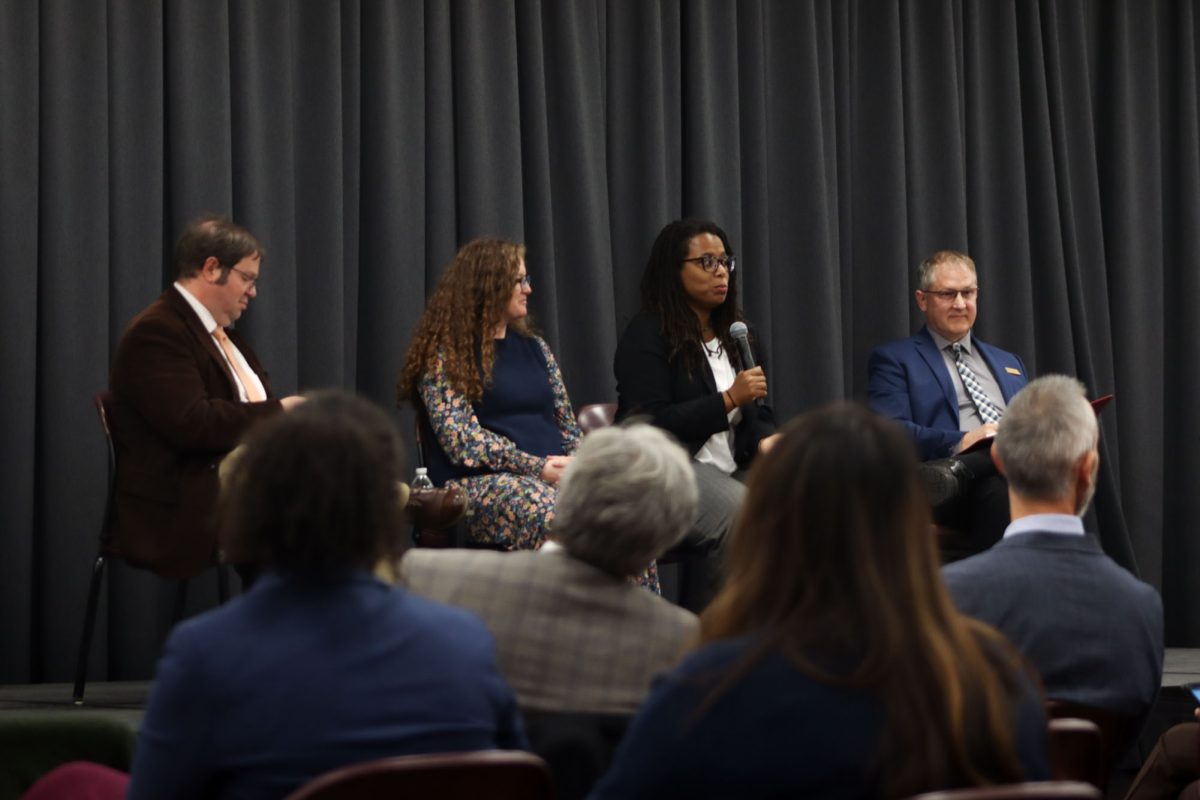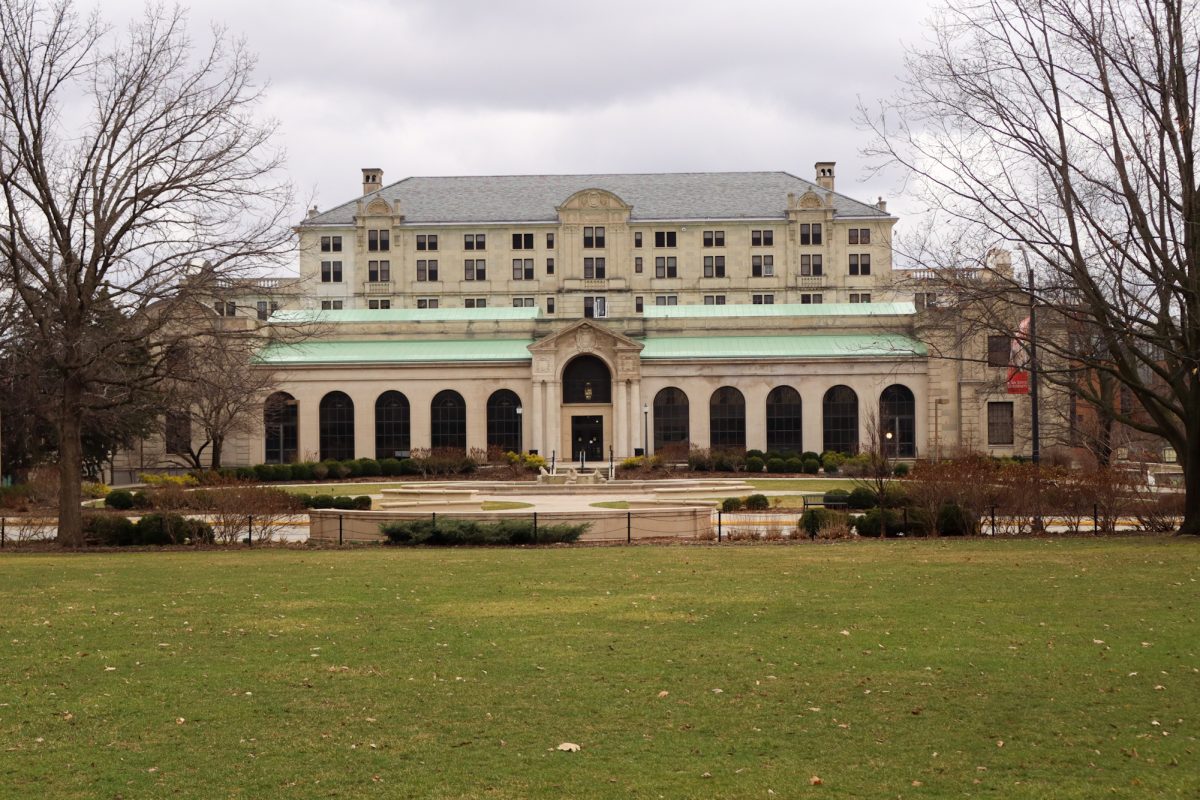At a panel held by the Iowa State Lecture Series, scholars explored how race and persecution continue to affect our world. The panel, sponsored by the U.S. Holocaust Memorial Museum, examined the criminalization of difference—how society marks certain people as outsiders or criminals based on their race or background.
The event opened with Benjamin Withers, dean of the College of Liberal Arts and Sciences, who described history as “the art of listening.”
Withers said learning about the past is like entering a room filled with people from different walks of life. You don’t talk to them; you listen. Through this, we gain a deeper understanding of how others face challenges we might never imagine. This theme—listening and understanding—carried through the entire evening.
Jeremy Best, the moderator and associate professor for the Department of History, introduced the idea of “criminalizing difference.”
Best said this means viewing certain groups as inherently criminal just because they are different. This process, deeply rooted in history, still echoes in the way we treat marginalized communities today.
Chelsi West Ohueri, an anthropologist and assistant professor for the Department of Slavic and Eurasian Studies at the University of Texas, shared her experiences in Albania.
Ohueri said that, as a Black woman, she was treated as an oddity—people touched her skin to see if her color would “rub off.” She said people often told her that “there is no race here,” but Ohueri said that her experience said otherwise.
Albanians, Ohueri said, often referred to themselves as the “n-words of Europe,” reflecting their internalized struggles with race. Her research explored how race is not just an American issue but something that deeply affects Europe as well, jokingly mentioning she’d like to give race back to Europe, as it is now seen as a very American concept.
Brian Behnken, a professor for the Department of History, discussed Mexican Americans and how they navigated America’s racial divide.
Behnken explained that to escape segregation, many Mexican Americans claimed to be white, even if they didn’t see themselves that way.
“I needed a book to explain this to me, but it didn’t exist, so I wrote it,” Behnken said.
Behnken’s work is now used to shed light on how racial identity can be used as a tool for survival.
Kierra Crago-Schneider, Iowa State’s campus outreach program officer, turned the conversation toward Jewish survivors after the Holocaust.
“You don’t just wake up and stop hating Jews,” Crago-Schneider said, emphasizing how anti-Semitism didn’t end with the war.
Crago-Schneider went on to explain that Jews in post-war Europe were still seen as criminals, even though they had suffered unimaginable persecution. Her research showed how old prejudices continued to shape their lives long after the Holocaust.
This panel granted the Iowa State community the unique opportunity to see how race and difference have been criminalized throughout history and across cultures. From the experiences of Roma people in Albania to the struggles of Mexican Americans and Jewish survivors, these stories challenge us to rethink how we see differences today.
As we listen to these stories, we are reminded that the past is not so distant—and that the way we view others still carries the weight of history.
For more information on the Iowa State Lecture Series, visit their website. To watch a recording of this panel, visit this link (note that the recording will not be available for 24 to 36 hours after the event).








